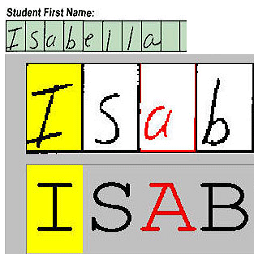Brain-computer interfaces (BCIs) enable direct interaction between users and computers by decoding brain signals. This study addresses the challenges of detecting P300 event-related potentials in electroencephalograms (EEGs) and integrating these P300 responses for character spelling, particularly within oddball paradigms characterized by uneven P300 distribution, low target probability, and poor signal-to-noise ratio (SNR). This work proposes a weighted ensemble spatio-sequential convolutional neural network (WE-SPSQ-CNN) to improve classification accuracy and SNR by mitigating signal variability for character identification. We evaluated the proposed WE-SPSQ-CNN on dataset II from the BCI Competition III, achieving P300 classification accuracies of 69.7\% for subject A and 79.9\% for subject B across fifteen epochs. For character recognition, the model achieved average accuracies of 76.5\%, 87.5\%, and 94.5\% with five, ten, and fifteen repetitions, respectively. Our proposed model outperformed state-of-the-art models in the five-repetition and delivered comparable performance in the ten and fifteen repetitions.
翻译:暂无翻译





